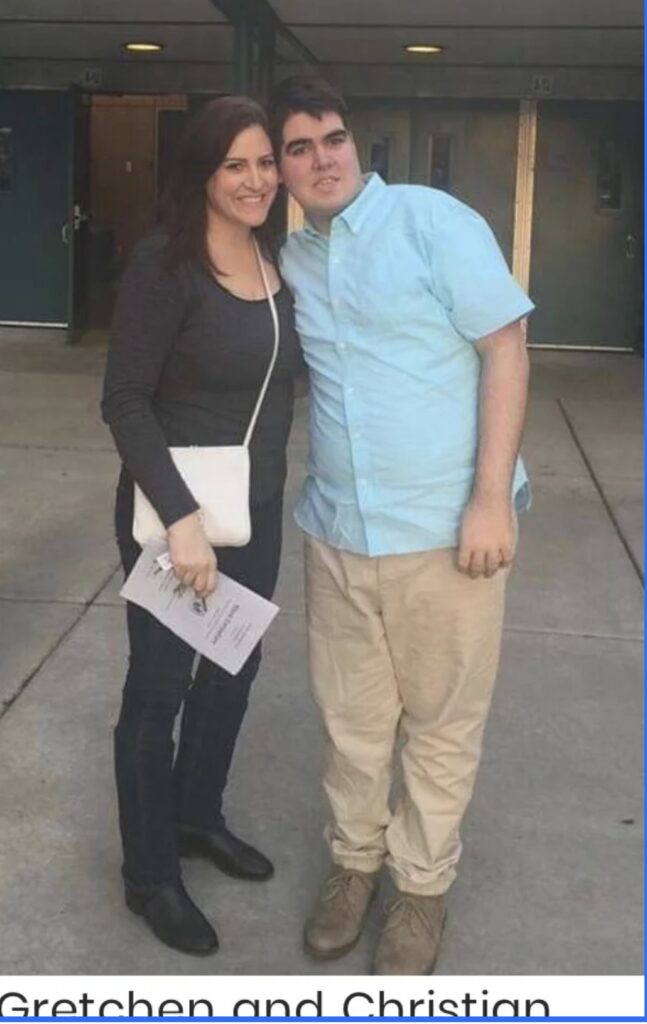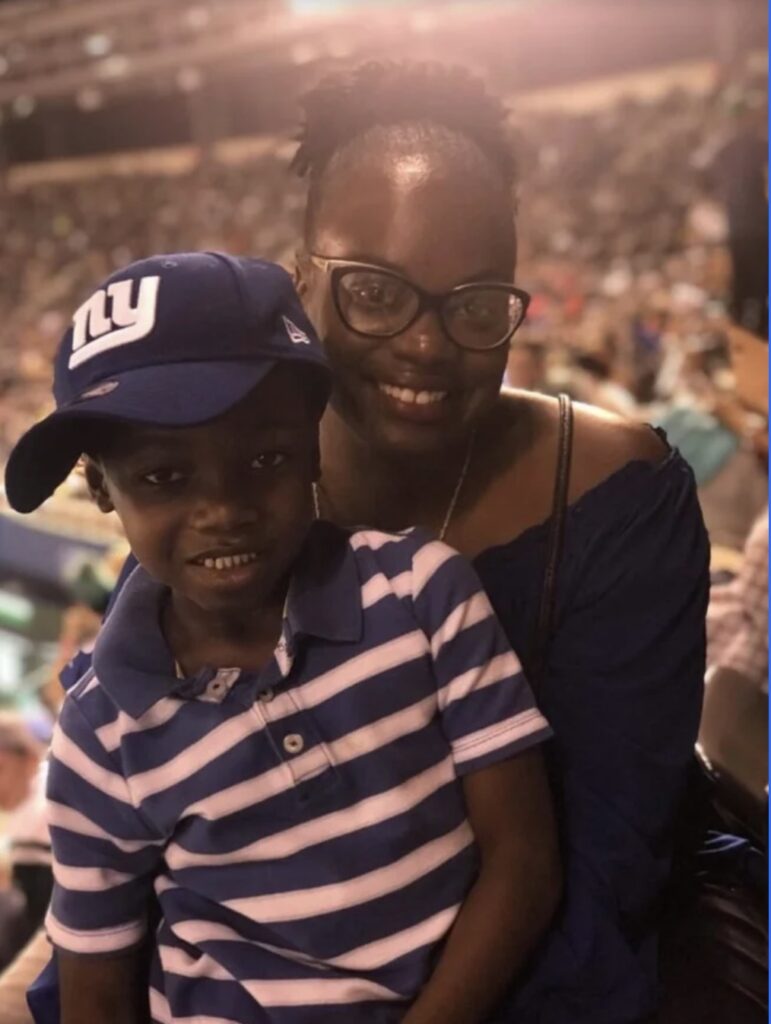The Secret Life Of A Special Needs Parent
Keep in mind that we may receive commissions when you click our links and make purchases. However, this does not impact our reviews and comparisons. We try our best to keep things fair and balanced, in order to help you make the best choice for you.
Parents of special needs children are members of an exclusive club. When our daughter Faith was diagnosed with Hirschsprung’s Disease, we became members of this club that most people wish to avoid. We are fortunate in the sense that she really does not have any limitations, and we only need to make minimal adjustments for her. Yet, this does not make Faith’s condition any less serious. We are required to monitor her diet and fluid intake a little more strictly.Weight gain has not been a problem for Faith since she received her Ostomy, it is a concern for many HD families. In addition, HD children suffer from dehydration quicker, so we make sure she constantly has something to drink, especially if it is hot or she is very active. Faith’s Ileostomy doesn’t stop her from doing any and everything she wants to do. She has a weekly dance class and attends gymnastics every other Saturday. In the summer, she loves to swim. Other than extra reinforcement to ensure she doesn’t have a leak from her Ostomy, there isn’t anything special we have to do.
HD children are prone to illness. So, flu season is very scary for us. A cold to you and me can quickly become a serious medical condition for HD children. One that leads to hospitalization, and unfortunately, even possibly death. Therefore, at the first sign of a fever or vomiting we head to the children’s hospital. We are blessed. Faith is doing very well. We made it through last winter with only one hospitalization. But, as the weather starts to get cold that fear rises again.
Of course, the Ileostomy and daily medications are constant reminders that Faith has a medical condition. Things are pretty normal in our house, but we still have our moments. Sometimes, nights can be difficult. Faith will tell us that her bag is itchy or that her tummy hurts. Occasionally, her Stoma will prolapse. When it is bad, she is inconsolable, and, there is nothing we can do but hold her and love on her.
Realizing your child is special needs.
No parent wishes for their child to have a disability. Yet, for many parents it becomes a reality. It doesn’t matter if you find out the news during pregnancy, at birth, or later, it is a shocking, surreal experience when the doctor’s start to explain that your child has…
For us, Faith’s diagnosis was a relief. We knew something was wrong for months, yet we had no idea what. So, to learn that she had Hirschsprung’s Disease meant we weren’t crazy. What was wrong had a name. We could go from there. Initially, we were told that Faith would have more complications than she did when she was released from the hospital. Fortunately she didn’t. But, we still had a huge learning curve dealing with her ostomy, and monitoring her diet.
Let the Grieving begin
As guilty as I feel for this, if I am being completely honest, and for the sake of transparency, I have to admit that I was more than sad when the realization of Faith’s condition finally settled. There was a period of grief or mourning for me. Gone was the idea of a relatively care-free infancy with Faith. All of a sudden we were thrown into a world of ostomies, appointments with specialists, and special diets. I mourned for what I thought was my “perfect” child. Now she had this bag and this condition I could barely pronounce.
Along with the grief came a sense of guilt. Did I do something wrong that caused this? Could all of this have been prevented if I took better care of myself throughout my pregnancy? I learned that it was nothing I did. Doctors do not know fully why HD occurs. It is a genetic abnormality. While it can be hereditary, in most cases it is just a random thing that happens. This did bring me some comfort. Faith is just the way God wanted to her to be. Yet, it still took time to digest, and come to grips with what would be our new normal.
Telling Others about Your Child’s Diagnosis.
Telling others about your child’s diagnosis can be difficult. It is almost like putting life to it for the very first time. Then there was the explaining to people what was wrong. Of course, no one had ever heard of Hirschsprung’s Disease. Heck, we had never heard of it! It was so difficult to explain her diagnosis to others when we barely had an understanding of it ourselves. But we got through it.
Explaining your child’s needs to others can be tricky. At first, we have to explain what HD is. Then we explain that the condition is chronic. Even if she does have her ostomy reversed (because we are always asked if she will have it for life), it is not a “fix”. There is still a possibility of life-long complications. I really don’t mind the questions, and educating people on Faith’s condition. It is the looks of pity or sympathy get me. Of course, I wish she didn’t have to go through this. But, for whatever reason, she does. And it has shaped her into the strong, independent, resilient, life-loving little girl that she is today. I would not change one thing about her.
What Not to Say to Special Needs Parents
It is amazing some of the things people say to special needs parents. Not long after we got home from the hospital after Faith was diagnosed a women came up to me and asked me if I was going to have another child. At first I thought she was asking because that is what people do. You know, when you are single they ask if you are dating anyone. When you are dating they ask when you will get married, and once you are married they start asking about babies. So, I just figured this was where the conversation was going. Never mind the fact that I was 43 at the time, and many of my friends were grandparents.
But this is not why she asked. She continued on to say that I should have another child, that I didn’t want just one, because anything can happen. She knew we just returned a few days earlier from being in the hospital with Faith. While she may not have know exactly what was wrong, it was common knowledge that she had been very ill. This was one of our first outings after we got home. Believe me, in the time that has passed I have thought of plenty I could have said to this woman. But in that moment, I was in shock and disbelief, I mean, did this woman really just tell me I should have another child in case my child died? That is basically what she said!
My feelings were so hurt that I just stood there, mouth open as she smiled up at me. I don’t know why, but I didn’t even tell Anthony about it until many months later. I just couldn’t even bring myself to repeat it. Even now, writing this, my stomach is turning flips.
Hopefully, most people aren’t this, well, ignorant. But even well-meaning people make insensitive comments. One that I hear most often is, “She doesn’t look like anything is wrong with her”. I understand that this is meant as a compliment. That she looks very healthy, and is full of energy and you wouldn’t ever know what was going on with her if I didn’t tell you. But this makes me worry because she does have a health condition. And it is serious, and it does have life-threatening complications associated with it. So, if someone who is responsible for caring for her (ex. a teacher) just “forgets” then that could be a potential problem.
It takes HD kids a lot longer usually to learn to control their bowels. This is a real problem for them when they get school age. She will most likely need to go urgently and frequently. I worry since she seems like “nothing is wrong” her requests won’t be taken seriously in the future. Because she “looks normal”. Other people disregard her diet and offer her milk, gum, and candy. All things that we limit or exclude from her diet.
I often have people saying to me that they don’t know how we do it, or they would not be able to do what we do. My response is usually something along the lines of the politically correct answer. Like, “oh yes you would. If it was your child. You would because you wouldn’t have a choice.” But what I really feel is sorry for them. Being Faith’s mother is such an honor and a blessing. I have learned so much from her. Her determination and strength are admirable. Sometimes, when I am feeling down, I think about her, and what she faces. That is all it takes. She encourages me to go on. If she can be so strong in the face of such adversities, surely I can continue.
What a Special Needs Parent Does Want You to Know:
I realize that most people aren’t ill-meaning in their comments. Maybe even the lady that said I should have another child, thought she was being helpful in some twisted way. What I realized is that people just don’t get it. They don’t understand what it is like caring for a child with some kind of special need.
It doesn’t matter if it is physical, developmental or psychological. People just don’t get it. But then I thought, Keina, you didn’t get it either, until you had Faith.
I recognize my experiences are probably different from the parent who’s child has a more outwardly physical manifestation of their disability. But I believe that we have more in common than not. That led me to talk with a few parents of children with disabilities that I know. I asked them, “if there was one thing that you would want people to know about parenting a child with a disability, what would it be?” The answers varied from person to person, but they all had the same underlying tone. They all wanted everyone to know that their child is just like anyone else.
What a Special Needs Parent Does Want You to Know:
I realize that most people aren’t ill-meaning in their comments. Maybe even the lady that said I should have another child, thought she was being helpful in some twisted way. What I realized is that people just don’t get it. They don’t understand what it is like caring for a child with some kind of special need.
It doesn’t matter if it is physical, developmental or psychological. People just don’t get it. But then I thought, Keina, you didn’t get it either, until you had Faith.
I recognize my experiences are probably different from the parent who’s child has a more outwardly physical manifestation of their disability. But I believe that we have more in common than not. That led me to talk with a few parents of children with disabilities that I know. I asked them, “if there was one thing that you would want people to know about parenting a child with a disability, what would it be?” The answers varied from person to person, but they all had the same underlying tone. They all wanted everyone to know that their child is just like anyone else.
One of my best childhood friends, Gretchen, spoke of her son Christian:
“People think he’s a lot of work or a burden, but in reality his is pure joy!!! I really love every minute with him. I’m just very lucky.
Another childhood friend, Stacy, said her son Reed:
“He likes the same things every other boy his age likes (sports, video games, hot rods). But he literally has no one to play with. If parents could teach their kids to include kids with special needs because they want to be included too”.
Stacy went on to add that she wanted everyone to know that her son is a BLESSING to her and to her entire family:
“Even if it seems like I am complaining, I’m not complaining about him as a person. I’m venting about the other things we have to deal with, but he is not a burden to us and we wouldn’t change him for the world. We love him as he is. Reed is perfect to me and I feel so blessed to have him. I feel like the luckiest mom on earth!?
My sorority sister, Natasha,shared the story of her son, Jordan who was diagnosed with NEC (necrotizing enterocolitis), a condition she had no idea about before her son.
“I wish I’d known what on earth NEC was because when Jordan got the diagnosis, I was like what the hell is this!?? I wish I had known about ostomies and bringing the intestines to the surface of the skin. All of this was foreign to me, and when you have a 2-day old baby and this is what is going on you are completely lost You don’t get to hold your baby. You don’t get to care for yourself. You don’t get to think straight”.
She explained that her son was in the NICU for 93 days. She went to the hospital everyday and believes that family love, along with the doctors and nurses that she still has contact with 6 years later, helped him.
Natasha mentioned that people also make the it doesn’t “look” like anything is wrong with him comments when she mentions Jordan’s ordeal to people. But she goes on to reflect on a time when things were not easy. “They were not there for the blow outs and trying to get him to try new foods. The constant worry about his growth”.
I mentioned earlier all the emotions that come along with finding out your child has special needs, and that as a parent you are now a part of a club that no parent wants to be a part of. Well, that is not completely true for my co-worker Richard who adopted his oldest son, Matthew at 5 days old. Matthew was diagnosed at 15 months with being moderately mentally challenged and suffers from seizures that he still takes medication to control.
Richard did physical therapy with Matthew 3 times per week for 6 weeks teaching him to crawl and eventually walk. When Matthew was 6, Richard spent 3 months teaching him to hit a baseball. Matthew went on to play two seasons of ball. Richard fondly recalled how proud he was of Matthew scoring two runs during that time. “I was so proud of him. Matthew has an IQ of 50 but is more intelligent than some college graduates I know. He loves everyone he meets unconditionally”. Matthew turned 38 this year. Like his father, he loves the St. Louis Cardinals. Richard went on to say Matthew has “taught me more than I could ever teach him. I think God send kids like him into the world to teach us how to love. He is God’s gift to me”.
Kaliyha Faith
“Even something as simple as going for a walk is difficult here, because there are no sidewalks. Sheena mentioned how lonely it can be to parent a special needs child, and would love to be able to meet other parents. She wanted other special needs parents to know that they are “not alone, and that they are strong. They are survivors”.
So, now you have a just a tiny glimpse into the world of a special needs parent. It is challenging, scary, frustrating, and tiring. But more importantly it is full of love, joy, blessings, , and strength. Be kind, teach your children to be kind. For other special needs parents, what are some other things you want people to know about your child?


